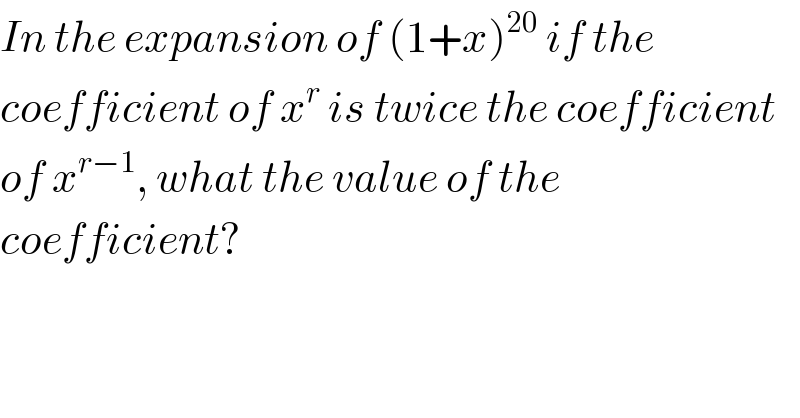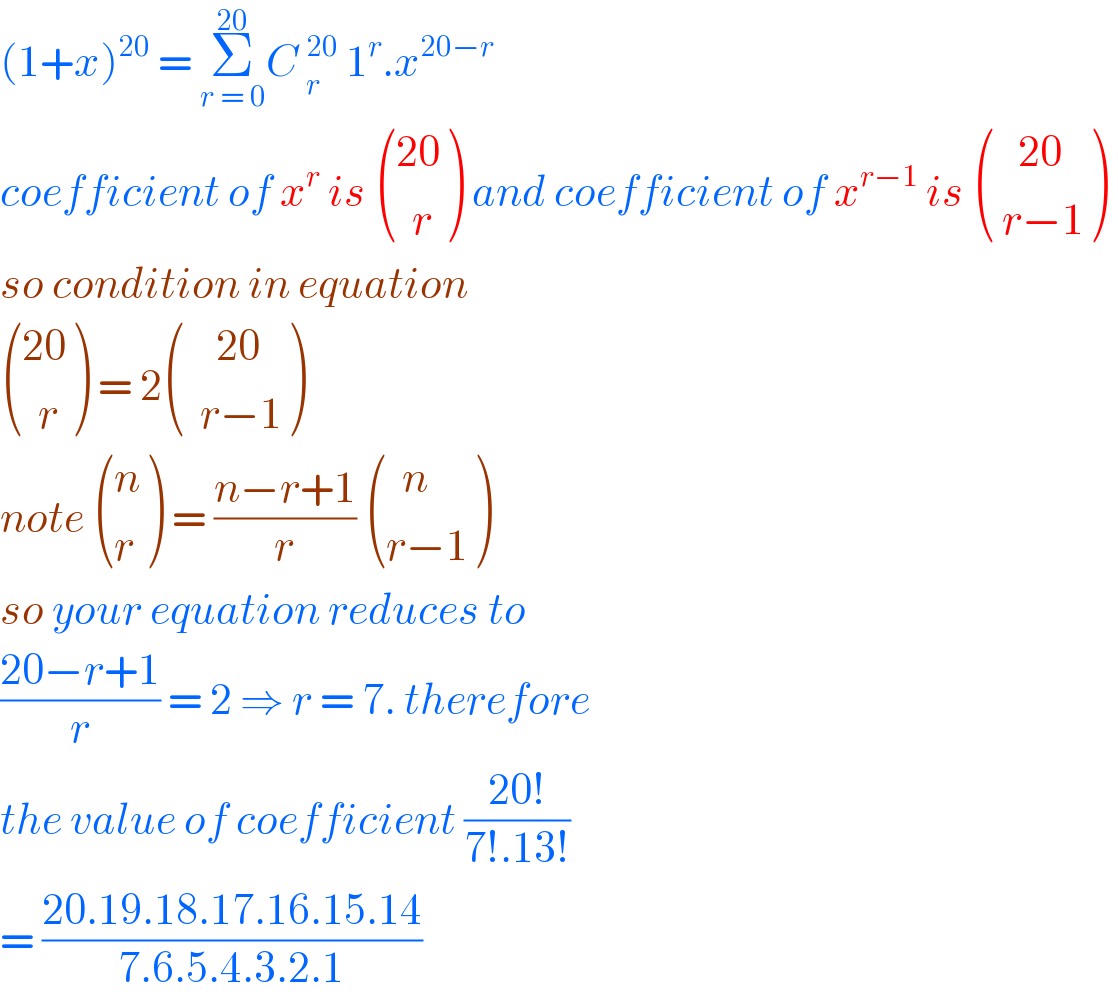Question Number 103826 by bobhans last updated on 17/Jul/20

$${In}\:{the}\:{expansion}\:{of}\:\left(\mathrm{1}+{x}\right)^{\mathrm{20}} \:{if}\:{the} \\ $$$${coefficient}\:{of}\:{x}^{{r}} \:{is}\:{twice}\:{the}\:{coefficient} \\ $$$${of}\:{x}^{{r}−\mathrm{1}} ,\:{what}\:{the}\:{value}\:{of}\:{the} \\ $$$${coefficient}?\: \\ $$
Answered by bramlex last updated on 17/Jul/20

$$\left(\mathrm{1}+{x}\right)^{\mathrm{20}} \:=\:\underset{{r}\:=\:\mathrm{0}} {\overset{\mathrm{20}} {\sum}}{C}\:_{{r}} ^{\mathrm{20}} \:\mathrm{1}^{{r}} .{x}^{\mathrm{20}−{r}} \\ $$$${coefficient}\:{of}\:{x}^{{r}} \:{is}\:\begin{pmatrix}{\mathrm{20}}\\{\:\:{r}}\end{pmatrix}\:{and}\:{coefficient}\:{of}\:{x}^{{r}−\mathrm{1}} \:{is}\:\begin{pmatrix}{\:\:\:\mathrm{20}}\\{\:{r}−\mathrm{1}}\end{pmatrix}\: \\ $$$${so}\:{condition}\:{in}\:{equation}\: \\ $$$$\begin{pmatrix}{\mathrm{20}}\\{\:\:{r}}\end{pmatrix}\:=\:\mathrm{2}\begin{pmatrix}{\:\:\:\:\mathrm{20}}\\{\:\:{r}−\mathrm{1}}\end{pmatrix}\: \\ $$$${note}\:\begin{pmatrix}{{n}}\\{{r}}\end{pmatrix}\:=\:\frac{{n}−{r}+\mathrm{1}}{{r}}\:\begin{pmatrix}{\:\:{n}}\\{{r}−\mathrm{1}}\end{pmatrix} \\ $$$${so}\:{your}\:{equation}\:{reduces}\:{to} \\ $$$$\frac{\mathrm{20}−{r}+\mathrm{1}}{{r}}\:=\:\mathrm{2}\:\Rightarrow\:{r}\:=\:\mathrm{7}.\:{therefore} \\ $$$${the}\:{value}\:{of}\:{coefficient}\:\frac{\mathrm{20}!}{\mathrm{7}!.\mathrm{13}!} \\ $$$$=\:\frac{\mathrm{20}.\mathrm{19}.\mathrm{18}.\mathrm{17}.\mathrm{16}.\mathrm{15}.\mathrm{14}}{\mathrm{7}.\mathrm{6}.\mathrm{5}.\mathrm{4}.\mathrm{3}.\mathrm{2}.\mathrm{1}}\:\: \\ $$
